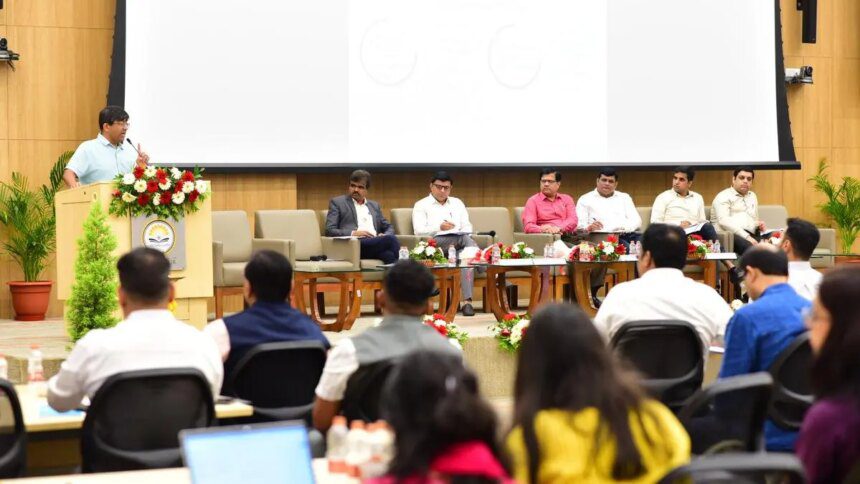Maharashtra’s cotton sector advanced its global competitiveness through a workshop titled “Enhancing Cotton Value Chain Development by Focusing on Quality, Productivity, Production, and Market Access” held at the Indian Institute of Management (IIM) Nagpur.
The one-day workshop was organized in collaboration with the Balasaheb Thackrey Agribusiness & Rural Transformation (SMART) Project, MITRA – Maharashtra Institution for Transformation, Maharashtra Village Social Transformation Foundation (VSTF), the Indo Cotton Development Association, Grant Thornton, and Palladium Consulting India Pvt Ltd. The event convened government officials, industry leaders, farmer producer companies (FPCs), and textile stakeholders to formulate a cohesive strategy for sustainable cotton value chain development in the state.
During his keynote address on “The Cotton Landscape in Maharashtra,” Praveen Pardeshi, Chief Economic Advisor to the Chief Minister’s Office and CEO of MITRA, emphasized the necessity of aligning agricultural practices, contamination control measures, and market reforms to meet global standards, notably through initiatives like Kasturi Cotton Bharat — India’s national program for cotton quality and traceability.
The workshop included technical sessions featuring insights from leading organizations such as Welspun Group, Beetle Regen Solutions, RPG Foundation, ICAR-CICR, and TEXPROCIL. Discussions focused on enhancing seed uniformity, advocating clean cotton harvesting, and upgrading ginning infrastructure to comply with international quality standards. Representatives from farmer producer organizations like Kanchani FPCL and Green Agritech FPCL showcased successes from the field, illustrating how contamination-free cotton and consistent seed quality can yield premium prices and open new market opportunities for farmers.
Breakout sessions delved into regenerative farming practices, contamination control, and traceable production systems, with Palladium facilitating discussions on sustainable agronomy and clean harvesting. Another session, led by CITI CDRA, MCX, and industry experts, concentrated on aligning production and ginning processes with international buyer standards, discussing investment opportunities, technological innovations, and supportive policy frameworks for modernization.
As global brands increasingly seek sustainable and traceable cotton sourcing, Maharashtra’s integrated strategy — linking FPOs, modern ginning units, and premium buyers — positions the state to capitalize on new export opportunities. The synergy among Better Cotton, Kasturi Bharat, and BIS certification frameworks is anticipated to bolster market credibility, enhance quality standards, and elevate farmer incomes.
The workshop concluded with a collective commitment to implement a three-year action plan focusing on developing seed homogeneity clusters, investing in modern ginning units, training farmers in best practices, and adapting production systems to align with global market demands.
Published on October 13, 2025.










